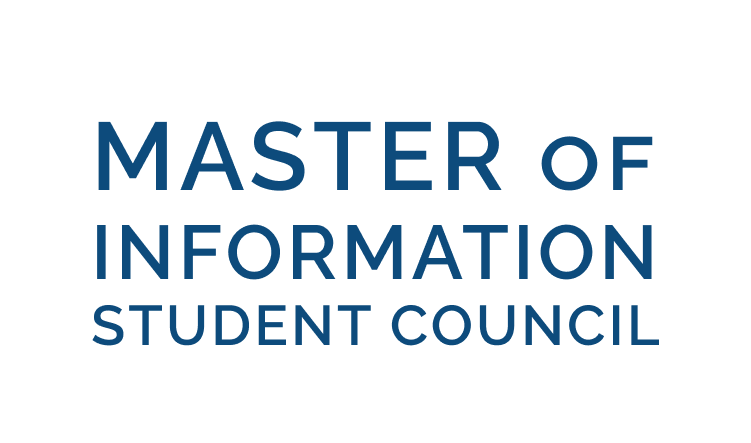Focusing on student mental health at our school and in the broader U of T community
The Mental Health Committee (iStudents for Mental Health) is a standing committee focused on student mental health at our school and UofT broadly.
Get involved in the development of iMH:
- Contribute to producing and publishing content – written or multimedia
- Help maintain, expand (and redesign!) our resource guide
- Organize and promote events with iMH
Action Items:
– Compile and update guide for mh-related supports, programs, and groups available to UofT students.
-Publish student-generated content reflecting on mh-related issues, news, and initiatives.
-Organize and promote events that facilitate peer connections and access to mh-related information.
Goals:
-Foster dialogue and community on issues of mental health that commonly affect graduate students;
-Advocate for greater expansion, improvement, and accessibility of UofT resources to help support student mental health; and
-Seek out and engage with opportunities for mental health-related education/preparedness for future librarians and information professionals.
Check out our past activities here!
Upper Year Co-Chair: Natalie Somerset
Natalie is a second year LIS student. During her undergrad she gained lots of experience developing her own self-care practices and helping friends and family struggling with mental illnesses with their self-care as well. She hopes to use her personal experience to help and support fellow iSchool students. She is excited to plan events that help students build practical skills and provide a chance to relax and have fun throughout the school year!

Email: natalie.somerset@mail.utoronto.ca
First Year Co-Chair: Vacant

Email: TBD
Resources
Emergencies
Services Available 24/7, Year-Round:
My Student Support Program
001-416-380-6578 (International)
U of T My SSP provides students with real-time and/or appointment-based confidential, 24-hour support for any school, health, or general life concern at no cost to you. You can call or chat with a counsellor directly from your phone whenever, wherever you are.
Ongoing support is available over the phone in 146 languages. Immediate support is available over the phone in 35 languages and over chat in simplified Chinese, English, French and Spanish.
Free Counseling
iSchool Embedded Councillor
Call (416) 978-8030
to schedule first appointment, specifically asking for the “iSchool Embedded Counsellor”. Follow-up appointments are scheduled directly with Ms. Doyle.
About Tracey
She can provide short-term counselling for a wide range of concerns including:
– relationship problems
– self-esteem or body image concerns
– interpersonal issues
– depression
– anxiety
– other mental health challenges
– substance or alcohol use
SGS Counselors:
The School of Graduate Studies has two full-time counselors.
416-978-8030 option 5,
and they will set up an assessment for you.
Services
Free wellness workshops for grad students are also available twice monthly, register on the Career & Co-Curricular Learning Network web page
24/7
Phone-Based Counseling
Services
Good2Talk: 1-866-925-5454 or text GOOD2TALKON to 686868
My SSP (North America Number): 1-844-451-9700,
Outside of North America: 001-416-380-6578
App: http://www.studentlife.utoronto.ca/cie/myssp
**Note that My SSP is geared specifically towards international students but any U of T student can access it. U of T My SSP provides students with real-time and/or appointment-based confidential, 24-hour support for any school, health, or general life concern at no cost to you. You can call or chat with a counsellor directly from your phone whenever, wherever you are.
Ongoing support is available over the phone in 146 languages. Immediate support is available over the phone in 35 languages and over chat in simplified Chinese, English, French and Spanish.
Wellness Resources
- Health & Wellness (St. George Campus)
- Accessibility Services (St. George Campus)
- Mental health virtual agent
- Grad Minds: The University of Toronto’s Graduate Student Mental Health Committee: https://www.gradminds.ca/
City of Toronto Resources/General Resources
Emergencies
Services that operate 24 hours a day, 7 days a week, all year long indicated in red
- Call 911
- Suicide Prevention Service (crisis support for anyone in Canada): Call 1-833-456-4566 / Text 45645
- Crisis Text Line
- Spectra Helpline (available 24/7 in English; Cantonese, Mandarin, Portugese, Spanish, Hindi, Punjabi, and Urdu services available Monday to Friday, 10am to 10pm): 905-459-7777
- Distress Centres of Greater Toronto: Call 416-408-4357 / Text 45645
- Gerstein Centre crisis line for serious mental health issues: 416-929-5200
- Trans Life Line (Hotline for trans and gender non-conforming individuals experiencing crisis): 1-877-330-6366
- Talk4Healing (Helpline by and for Indigenous women. 14 Indigenous languages in addition to English and French. Live chat also available): 1-855-554-4325
- Métis Nation of Ontario (Mental Health and Addiction crisis line for Métis people, available in English and French): 1-877-767-7572
- Schlifer Clinic (offers legal representation, counseling, multilingual interpretation for women who have experienced abuse): 416-323-9149
- Ontario Victim Support Line (Crisis line for women who have experienced abuse with service in 200+ languages): 416-314-2447
- Toronto Rape Crisis Centre/Multicultural Women Against Rape: 416-597-8808
- City of Toronto emergency shelter access: Call 311 or 416-338-4766 or 1-877-338-3398
- Walk-in referral from the Streets to Homes Assessment and Referral Centre available at 129 Peter St.
External Counseling
Insurance Coverage
OHIP and UHIP:
The services of Registered Social Workers, privately practicing psychologists, and psychotherapists are not covered by OHIP or UHIP. Therapy is covered when done by a medical professional such as an MD (like your family doctor) or a psychiatrist. To see a psychiatrist, you must be referred to one by your family doctor. Emergency Room and other inpatient and outpatient hospital services including visits for psychiatric care are 100% covered.
Supplementary Insurance through UTGSU (studentcare.ca):
$500 per benefit year for the services of a Psychologist, Master of Social Work, or Psychotherapist. For details on submitting claims (getting your money!) see pages 18-19 of the Benefit Booklet.
Finding a therapist:
This CAMH document breaks down types of therapy, lists organizations and sites where you can search for therapists, and lists free or sliding scale resources in the GTA. It also lists hospital-based outpatient programs for mental health. Fees and insurance coverage are listed for each resource.
Community Organizations
- Across Boundaries (equitable, holistic mental health and addiction services for racialized communities)
- Caribbean African Canadian Social Services
- Family Services Toronto
- Hong Fook (Mental health agency serving Cambodian, Chinese (Cantonese and Mandarin), Korean and Vietnamese communities)
- Native Child and Family Services of Toronto
- Sherbourne Health (Mental health services with a focus on people living in our mid-East Toronto neighbourhood, homeless and under-housed people, the LGBTQ community and newcomers to Canada)
- Strides Toronto (services for children, youth and families)
- The Access Point (site provides links to various mental health services living with the area of Port Union Road to Highway 427 and Steeles Ave. to the lake.)
- Warm Line (Are you feeling lonely, isolated, anxious, depressed or in need of a friendly ear? Chat online, text or call a Warm Line peer support worker.)
If you’re in crisis:
You may also access support workers, social workers, psychologists and other professionals for confidential chat sessions or phone calls by texting WELLNESS to:
- 686868 for youth
- 741741 for adults
For Indigenous:
Hope for Wellness Help Line Call 1-855-242-3310 (toll-free) or connect to the online Hope for Wellness chat.
If you’re looking for general support:
Wellness Together Canada offers resources for talking to a mental health professional, getting peer support, completing self-guided courses, and reading articles on the topics of mental health and substance abuse.
